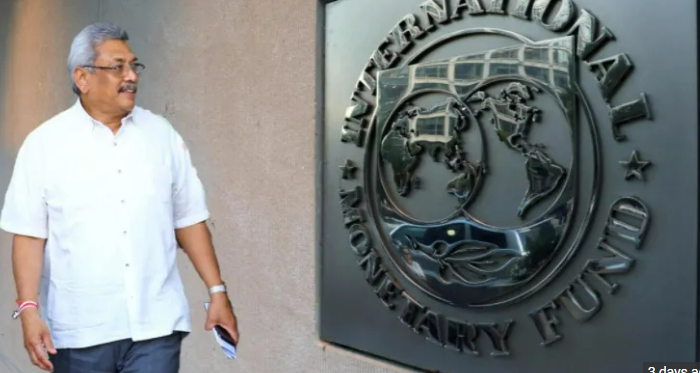Virendra Pandit
New Delhi: A Sri Lankan delegation will head to the US next week to request up to USD 4 billion from the International Monetary Fund (IMF) and other lenders to help the island nation pay for food and fuel imports and limit debt defaults, the media reported on Friday.
Sri Lanka’s new Finance Minister Ali Sabry, who will lead the team, is expecting to negotiate with the lenders from April 18 to secure aid at the earliest. He said Sri Lanka is also in talks with the World Bank and the Asian Development Bank (ADB).
“We need immediate emergency funding to get our country back on track,” they quoted him as saying as he sought between USD 3 and 4 billion this year itself.”
Central Bank of Sri Lanka’s new Governor Nandalal Weerasinghe and Treasury Secretary Mahinda Siriwardana, who both have worked with the IMF, will be part of the delegation, the reports said.
Given the unprecedented economic crisis and the shortages-facing citizens’ relentless daily protests across the country, calling for the ouster of President Gotabaya Rajapaksa might make it difficult to convince the IMF to lend money.
Sri Lanka’s USD 81 billion economy is facing USD 8.6 billion worth of debt obligations in 2022. Recently, it suspended payments on all foreign loans worth USD 51 billion to preserve cash to pay for essential food and fuel imports. By March 31, Colombo’s foreign exchange reserves had plummeted to less than USD 2 billion.
The Indian Ocean’s island country, India’s next-door neighbor, is facing the worst economic crisis since its Independence from the British in 1948.
The last time the IMF helped Colombo was in 2016, with a loan of USD 1.5 billion. But they prematurely ended the program after the disbursement of USD 1.3 billion as Sri Lanka’s economy grew at about 5 percent and tourism accounted for a similar percentage of GDP, the reports said.
The pandemic, Covid-19, however, changed the situation in 2020 as tourism collapsed because of prolonged lockdowns. Also, the country could not receive remittances from its overseas workforce, many of whom lost their jobs. China’s debt-trap contributed to the worsening economy.
These reasons added up to the crisis, forcing Sri Lanka to turn to other countries, including China and India, for support.
Meanwhile, Sri Lanka’s High Commissioner to India Milinda Moragoda called on Finance Minister Nirmala Sitharaman in New Delhi requesting additional help for securing food and fuel imports. In the last few weeks, India has already provided a USD 1 billion credit facility to Colombo to buy food, medicines, and other essential items, and another USD 500 million for fuel imports.
Sri Lanka may appeal to aid-givers for restructuring of loans, and a haircut, including a waiver of 50 percent on interest payments, and 20 percent on the principal. “If you have been part of our prosperity and made money out of it when we are not doing well, you need to take some sort of haircut,” Sabry said.
The Sri Lankan government is also considering cutting expenditure, including freezing hiring at various departments, as austerity measures.
Recently, Sri Lanka raised interest rates, devalued the local currency, and placed curbs on non-essential imports.
The IMF said it is “monitoring the political and economic developments very closely,” and is “very concerned” about the hardships suffered by the people, especially the poor and vulnerable.

